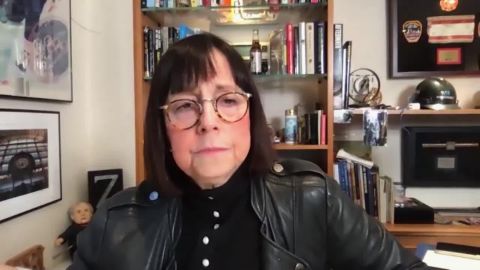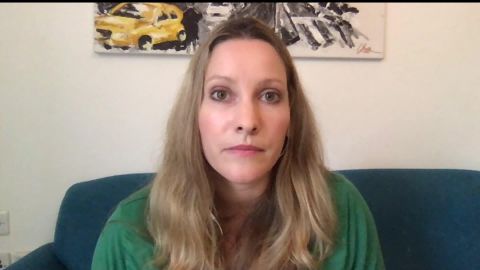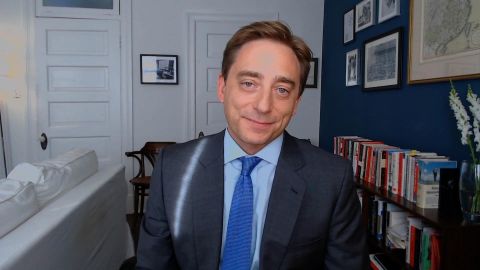Read Transcript EXPAND
CHRISTIANE AMANPOUR: I mean, your book really does go through his life and we’ll get to it, but he has, you know, got there and then not decided to make the run. What do you think it is about now that makes him the candidate poised to potentially win, but certainly to be the Democratic presidential hopeful?
EVAN OSNOS, AUTHOR, “JOE BIDEN: THE LIFE, THE RUN AND WHAT MATTERS NOW: Well, Christiane, you know, I was as interested as his failures in life, frankly, his disappointments, his setbacks, as I am in his achievements. And one of his friends said to me at one point, if you ask me who the unluckiest person I know is, it’s Joe Biden. If you ask me who the luckiest person I know is, it’s Joe Biden. And in many ways, you have to understand that combination of wins and losses to understand what shaped him, what makes his mind work, how he thinks about things. And I mean, to give you an example, if you go back, there are pieces of his story we don’t often talk about that are quite telling, actually. If you go back to his early year in the Senate, when he got there in 1973, he was one of the youngest members ever, he was only 29 when he was elected. 30 when he joins the Congress. And people didn’t take him all that seriously. And he got up in an early speech, talked about a subject he didn’t really know well. Oil wells, it turned out. And somebody challenged him. They said, Senator Biden, do you know anything about oil wells? And that experience sort of changed him. He went back to his staff, and he said, I never want to be embarrassed like that again. I never want to be caught out talking about something that I don’t understand. And he became known for this kind of furious level of preparation and he started to study up. And another congressman, the late Stephen Solarz, has once mentioned that he came to the Senate late one night, everybody had gone home and he heard somebody talking in the well of the Senate. He was holding the fort like he was in the Roman coliseum, though nobody was there, and he said it was Joe Biden and he was, as Solarz said, practicing it like a tennis pro. And I think there is, in Joe Biden’s story, a kind of, what I would call a sort of productive insecurity, wanting to learn more, wanting to correct his own mistakes.
AMANPOUR: And, Evan, what then keeps him in the arena? All of this, you said, we’ll drill down on some of it in a second, but, you know, he’s 77 and it wasn’t obvious, he wasn’t an immediate to be a candidate who presented himself for the Democratic primaries, I think he was quite late getting into that. What keeps him in the arena?
OSNOS: You know, he didn’t think he was going to run for president again. At the end of 2016, his son, Beau, had died, Barack Obama had given his support in effect to Hillary Clinton to become the first woman president, a pathbreaker much like Obama had been. And Biden was in retirement. And he saw Donald Trump say about those white supremacists in Charlottesville that they were very fine people on both sides. And from Biden’s perspective, it was a kind of moral emergency. This was not a hard question. He was convinced that he had a strong candidacy if he chose to step forward and he was worried that other Democrats couldn’t do it. He looked at the Democratic field, it was distributed across a broad spectrum and he was afraid about the possibility of four more years of Donald Trump. And so, he put his name in the ring.
About This Episode EXPAND
Christiane speaks with Evan Osnos about his new book ““Joe Biden: The Life, The Run and What Matters Now.” She also speaks with Laura Bates, who studies the impact of toxic masculinity. Walter Isaacson speaks with CBS News President Susan Zirinsky about the challenges of covering this unique election.
LEARN MORE


